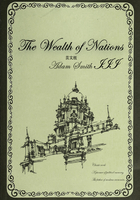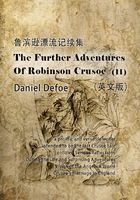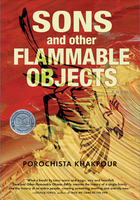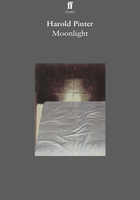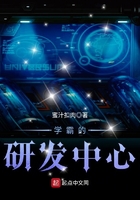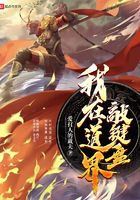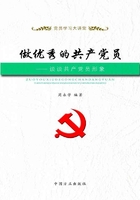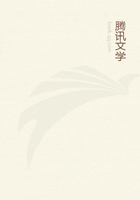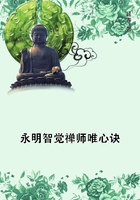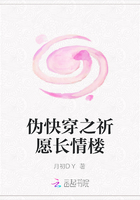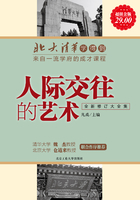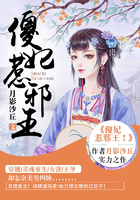BY THE TIME MING GOT HOME, HE WAS COLD AND hungry. He leaned his shoulder against the front gate and dug out his key. He heard a strange noise coming from inside. He opened the gate and stepped into the courtyard. Before he ran into the house, he quickly slammed the door shut and barred it.
Shí was still on the desk, rocking in time to the music coming from the radio. Ming hastily shut the door. He winced as Shí growled out "The East Is Red" in a gravelly, off-key voice.
Chairman Mao loves the people.
He guides us to build a new China.
Ming knew that the radio station repeated the same "revolutionary" songs when it wasn't broadcasting political speeches. He had no doubt that Shí had spent the day listening to-and memorizing-popular songs like "Socialism Is Good" and "No Communist Party, No New China."
Shí looked up. "Ah, you're back! How was school?"
"Fine." Ming reached over and snapped off the radio. He dropped his schoolbag and pulled a battered box of matches from his pocket. With a flick, he lit a piece of old newspaper and threw it onto the coals in the stove.
Shí followed Ming's movements closely. "Hmm… A tiny twig can start a fire. Another modern miracle!"
"Yeah, they're great." Too hungry to explain how the matches worked, Ming slipped them back into his pocket and put on the teakettle.
"In my day, we had to use iron and rocks." Shí tilted his chin at the radio. "And this magic box is just incredible! How did your people squeeze in so many musicians?"
"Like you said-it's magic." Ming walked into the back room and placed the old man's broken clock on the table next to his bed. Even though he had eaten the peanuts on the walk home, his stomach still rumbled wildly.
Ming decided to distract himself, as he often did when he was hungry. He returned to the front room and slumped down in the chair beside the desk. "So tell me, Shí, why would the Emperor need a Great Wall? Didn't he have a large army?"
"He did, but it wasn't big enough to guard the entire border. Haven't your books taught you about the Mongols? They attacked and then vanished like smoke in the wind, leaving behind burning villages and bloody corpses."
Ming changed the subject, as he had very little knowledge about the Mongols. "Was it hard being at home without your father?"
"Yes. The worst part was listening to my mother sobbing at night. I felt so powerless."
"I know the feeling." Ming nodded sympathetically. He had rarely seen Bā ba smile since his mother's death. "Did you get drafted into the Qin Army?"
"No, I was too young."
"Then how did you get in?"
"I volunteered-to save my father. Thanks to my mother's good cooking, I'd grown tall and sturdy." Shí smacked his lips, as if once again savoring his mother's delicious food. "The recruiter was looking for strong men and believed I was fifteen." Shí grinned. "He was a year off."
Ming wished that he were from a working-class family and could volunteer for the People's Liberation Army. He heard the soldiers ate meat and fish every day!
"What happened to your mother? Didn't your father ask you to take care of her?"
"There was nothing I could do." Ming detected a note of sadness in Shí's voice. "I tried everything, but I couldn't feed us. I volunteered because I heard that the Emperor would reward brave soldiers with land and excuse their family members from construction duty. I thought capturing a few Mongol heads would be easy. I should have known better."
"Mongol heads?" Confused, Ming asked, "What do you mean?"
"Qin soldiers received rewards based on the number of enemies we killed. At the end of the battle, we turned in the heads to be tallied."
Ming's attention was abruptly caught by deep voices outside. He couldn't make out what they were saying. He got up and looked out the window. The heavy wooden gate was still securely barred.
"It broke my heart to leave my thin, frail mother behind," Shí continued. "The night before my departure, she was hunched over a flickering oil lamp, sewing. Through half-closed eyes, I watched tears roll down her wrinkled face. Her lips moved silently as her fingers worked the needle. Legend says that if a soldier wears a jacket made with one thousand stitches, he will be protected from harm. I was not sure if she was counting or praying to the kitchen god."
Ming's eyes welled up with tears and he sat back down.
Shí paused and looked at him with concern.
"My mother knitted the warmest sweaters for me when she was alive," Ming said in a choked voice. The rest of the words stuck in his throat like a fish bone.
"You must miss her," Shí said softly.
Ming nodded. He was too embarrassed to tell Shí that he often woke up at night and clutched the blue sweater that his mother had left behind, breathing in her familiar smell. But the scent had grown faint, so faint that he worried he was only imagining it. The memories of his mother had been slipping from his mind like rain running off a glazed tile. Sometimes he found forgetfulness easier than dwelling on the past.
Someone pounded on the courtyard gate. Ming sighed. It was probably the Gee brothers again. He hoped that if he ignored them long enough, they would go away.
The next morning I left my mother. I was wearing my new jacket. It had a round shield stitched on the front and a pine tree, the symbol for a long life, on the back. To my surprise, many of the new recruits were around my age.
After three days of hard marching, we arrived at our camp in the eastern part of Liaoning Province. I was standing in line collecting my supplies when someone punched my shoulder.
"Shí!"
It was Feng, a boy from my village with whom I had often raced horses.
"How long have you been here?" I asked excitedly.
"Two days! It's great to see you!"
Feng told me that with so many men like my father off building the Great Wall and the Emperor's mausoleum, the recruiters had loosened the age restrictions.
The leather armor I received had a large patch of dried blood staining the chest. It resembled a blossoming peony, with a hole the size of an arrowhead at the heart.
"I hope you have better luck than the previous owner," Feng joked.
"I am protected!" I proudly patted the jacket my mother had sewn.
The banging had stopped, but Ming could hear voices arguing heatedly out on the street.
That night, rain and wind whipped at our tent. Cold and hungry, I huddled under my thin cotton blanket. My dreams were haunted by images of the gruesome death of my armor's previous owner.
"Get up! Gather outside!"
The harsh yelling woke me. As we stumbled out into the dark, icy rain lashed at our faces. Chilled to the bone and shivering with fear, I watched a platoon of veterans march in.
"Look at their beat-up armor!" Feng said under his breath. "They must have just come from a fierce battle."
Even though the men looked exhausted, they stood tall. From the pride in their eyes and the sneers on their lips, it was apparent that they looked down on us new recruits.
The camp commander barked at our disheveled lines, "Pair off with a veteran and follow his orders!"
I was about to tell Feng that we should stay together, when a large man stopped in front of me. A scar ran from his temple down to the base of his neck. I noticed that several of his teeth were missing.
"I am Liang. Come with me!" He turned abruptly and stomped off.
I hurried after him.
"Stay alive!" Feng called out.
"You too!" I shouted back.
Liang wasn't a friendly or talkative person. He was one of those rare men who could terrify you with a look. My only consolation was that he seemed to dislike everyone equally. For a week, our squad of three veterans and three recruits marched across rugged mountain terrain to get to our first posting, which was located on a newly completed section of the Great Wall in the far north.
Life was harsh and food was scarce. Our main staple was sorghum. We ate sorghum porridge, sorghum cake, and sorghum noodles. When Liang and I managed to get our hands on some meat and eggs, we would cook together.
Ming's mouth watered.
One day we marched for hours, with only a small bowl of sorghum porridge for lunch. At our campsite that evening, Liang and I built a fire, huddling close for its warmth.
"Set your helmet over the fire," he ordered.
I hesitated, unsure of what was happening.
"Now!" He was irritated by my reluctance.
I hastily used two thick sticks to prop my helmet over the fire. To my surprise, he turned the helmet upside down and tossed in a handful of onions and some chunks of dried meat. Then he emptied the water from his cow-stomach canteen into the helmet.
The delicious steam soon set my head swirling and my stomach dancing.
Ming gulped. It had been so long since he had smelled meat cooking.
"Uh… I thought helmets were supposed to be worn in battle," I commented nervously.
Liang snorted. "Only cowards wear helmets and armor. Brave Qin soldiers shed unnecessary weight so they can charge quickly and hit the enemy hard."
"Are you going to teach me how to fight?" I asked tentatively.
Liang stared at me for a long moment and said, "That would be a waste of my time."
I was afraid to ask what he meant. Did he think I'd die quickly?
After that, any offhand remark from him or a sick joke by another soldier became a bad omen. I kept picturing my impending death.
"Ming! Give us back our earth god!" The harsh tones, accompanied by heavy pounding, cut through the cold air.
Ming jumped up. "Be quiet! Someone is outside." As he headed into the courtyard, he tried to think of some excuse to send the visitors away.
Ming swung open the gate and found two of the Gee brothers standing there. The oldest Gee brother's fist was raised, poised to pound on the gate again. When he saw Ming, the man lowered his hand and smiled sheepishly.
"What do you want?" Ming tried to sound stern. He was irritated that he had to deal with the Gee brothers again.
"Why did you bar your gate in the middle of the day?" barked the youngest brother.
"Why are you trying to break into my courtyard?" Ming shot back. It was people like the Gee brothers who made him hate the village.
"Give us back the earth god!" demanded the old man.
The youngest brother tried to squeeze by. Ming blocked the entry with his thin frame, taking up a defiant posture: one foot forward, one foot behind, so that his upper body slouched backward.
"What does this look like to you-the communal tool-shed?" Ming raised his voice and fixed a hard gaze on the brothers. "The 'earth god' is the property of the state. You'll have to manage without it." He was pleased with his quick response.
"But-but-but I need it for my daughter-in-law!" the oldest brother protested. "She's about to have a baby, and I want the earth god to protect her!"
With gritted teeth, Ming listened to the oldest Gee brother babble. He watched the loose skin of the man's chin wobble as he spoke.
"Wait here," Ming said at last.
He went back into the house and rooted around in one of the desk drawers. When he found what he was looking for, he turned around, only to find that the brothers had followed him in and were staring at the now-inanimate head.
Ming stepped in front of the head, blocking it from the farmers' view. "Look at this. See the red seal?" He held the piece of paper in front of their faces, pointing at a line halfway down the paper. "It's from the government. Right here, it says, 'Any artifacts unearthed are the property of the people and therefore belong to the Xi'an museum.'" Gesturing to the head on the desk, he continued, "This doesn't belong to me or you or my father. It belongs to the people. That means it's illegal for you to take it."
The old man's tone became pleading. "But I am one of the people! I just want to borrow the head until my grandson is born!"
Ming lowered the document. Did the old man really believe that Shí was an earth god? Perhaps there was another way of dealing with him. He leaned closer, speaking as he would to a small child. "Listen, I wasn't going to tell you this, but I have been reading about this head since I got home from school." He pointed at a stack of old books on the desk. "Believe me, this isn't the kind of earth god you want watching over your grandson's birth. It's a malicious god."
"You mean… a demon?" the oldest brother asked nervously.
"Tsk. 'Demon' is such an ugly word. Let's just call it… a 'restless spirit,'" Ming drawled, a smirk playing at the corners of his mouth.
The old man took a quick step back.
Ming whispered conspiratorially, "There's no cause for worry. It looks like it's meditating right now. Let's be careful not to wake it up." With that, he guided the Gee brothers toward the door. "As soon as my father comes home, he'll take it to the city, so it won't bring any bad luck to our peaceful village."
"Oh… ah… well… Yes, in that case, you hold on to it," the oldest brother mumbled. "Besides, even if it was a benevolent earth god, I would never take the people's property." Wearing an uneasy grin, he hustled out.
The youngest brother followed.
Ming closed the gate behind them and heaved a huge sigh of relief.
As he walked back into the house, he heard a rhythmic grinding noise, like a saw cutting gravel. It took him a while to realize that the head was laughing!
"You continue to impress me, Ming! Me, an evil earth god!" The head laughed again.
"Well, do you want to watch the village seamstress give birth?" Ming asked.

